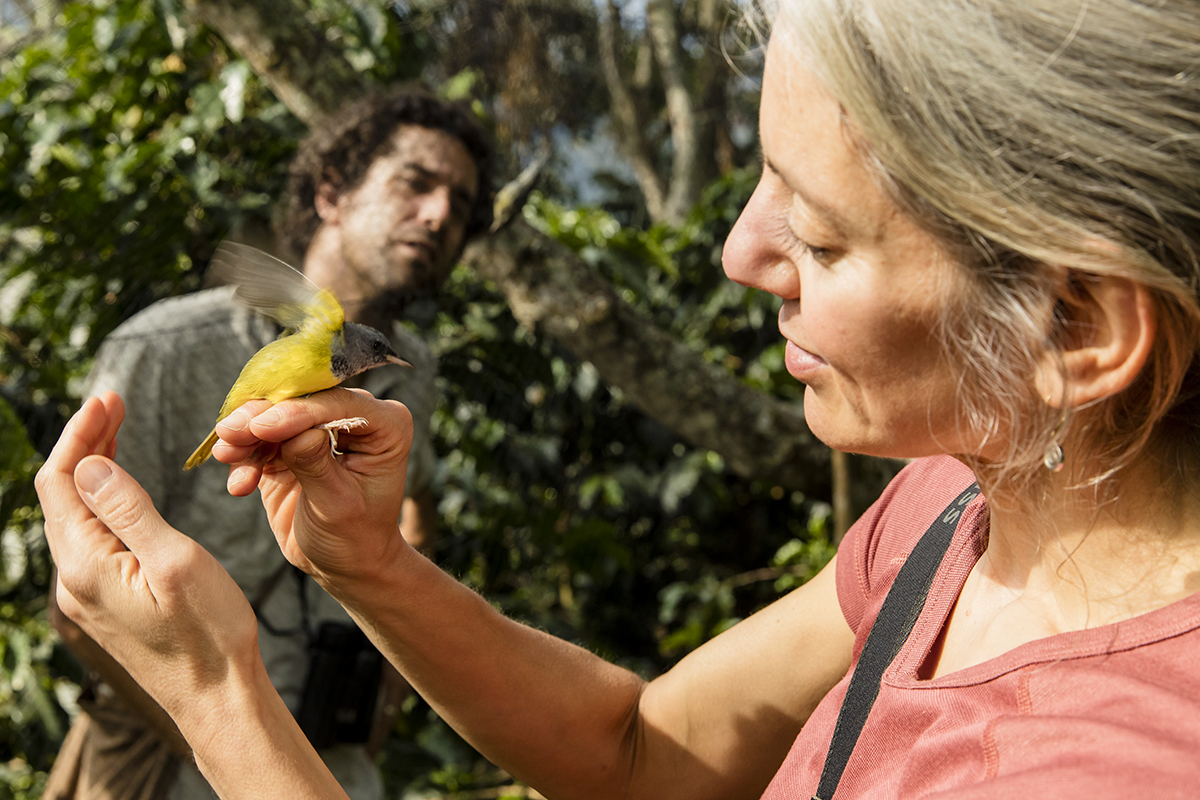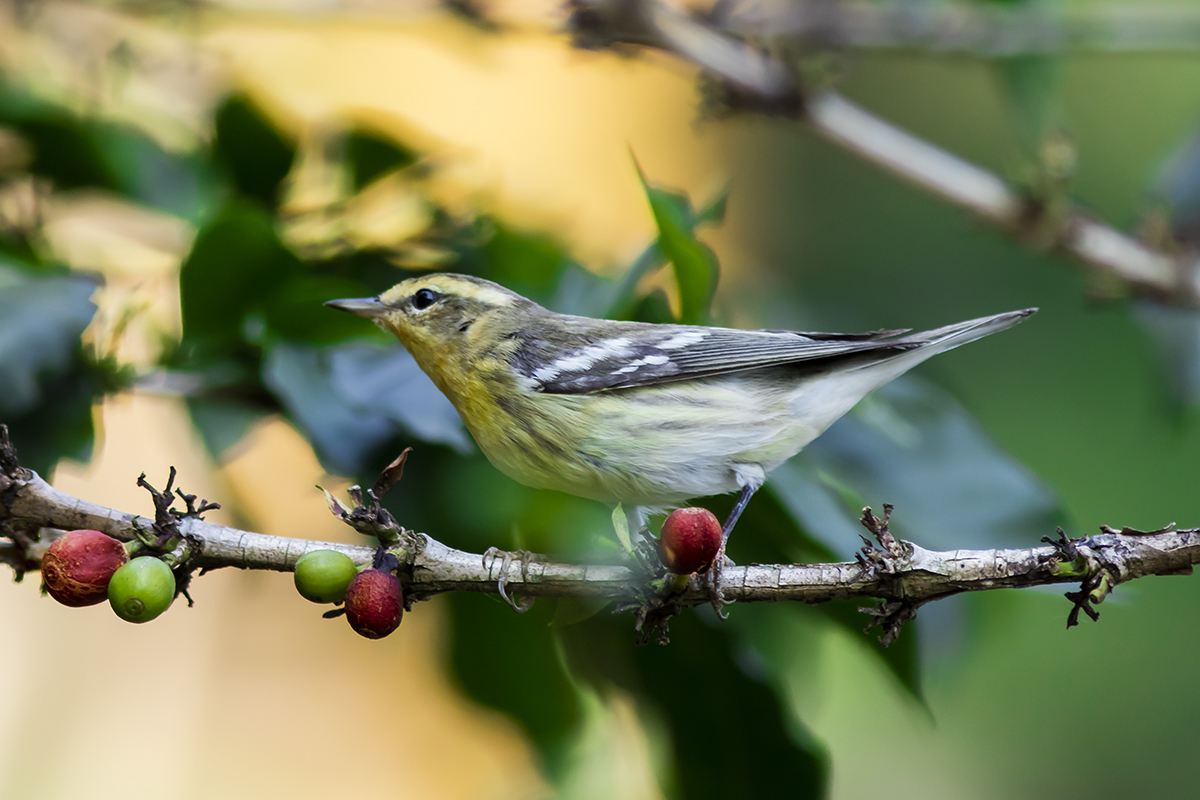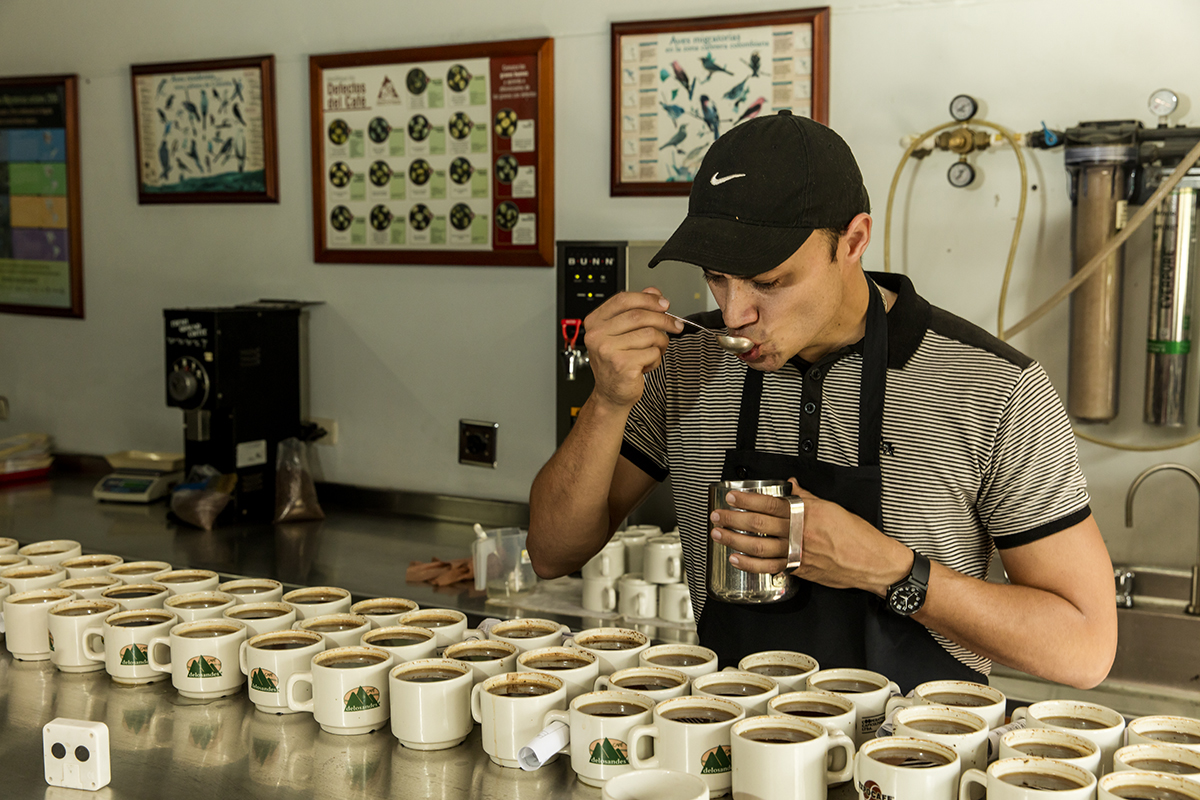Radical collaboration protects Colombia’s birds, coffee farmers
By Krisy Gashler
The traditional approach to environmental conservation goes something like this: A particular landscape or species, usually somewhere in the developing world, is deemed important and, therefore, countries are encouraged to rope off big chunks of land and keep people out.
But the people being kept out are usually farmers struggling with poverty, whose only reliable source of income is that landscape. The approach pits two important principles against each other: environmental conservation and social justice.
Over the past decade or so, conservationists have learned that the most effective, sustainable and just solutions take into account the social, economic and environmental needs of each area. These kinds of solutions are harder to find and require radical collaborations, not just between multidisciplinary academic fields, but also between public and private stakeholders and, most importantly, between conservationists and the farmers themselves.
Focusing on coffee farmers in Colombia, two Cornell researchers are leading just such a collaboration: Juan Nicolás Hernandez-Aguilera, a doctoral candidate in the lab of Miguel Gomez, associate professor of applied economics and management, and Amanda Rodewald, the Garvin Professor of Ornithology and director of conservation science at the Lab of Ornithology.

Their work centers on supporting a sustainable environment for Colombia’s birds and coffee growers. Coffee is the second-most valuable commodity produced by developing countries, after petroleum, generating income for approximately 125 million people in those countries. And Colombia is the most biodiverse country in the world, per hectare, with the most diverse bird population in the world.
But changes in coffee production are threatening that biodiversity. The chief problem is a shift from traditional practices where coffee was grown under a canopy of trees, called “shade-grown coffee” to more sterile monocultures called “sun coffee.” This conversion has largely resulted from efforts to increase coffee yields, but that comes at the expense of sustainability.
“The notion of sustainability implies different aspects: environmental sustainability, but also social and economic sustainability, and providing opportunities for small-holder growers. We want to understand what can lead to growth in markets for those growers,” Hernandez-Aguilera said.
“For me, coming at it as an ecologist and a conservation biologist, I’m thinking about the environment, about biodiversity,” Rodewald said. “But learning about that is not going to effect change. So we need to work with other people to figure out, how do you actually encourage and incentivize people to use these different practices?”

The researchers’ work involved a holistic study of 255 coffee farms Antioquia and Cauca, Colombia. For each farm, Hernandez-Aguilera started with an economic survey, gathering information about production, market opportunities, machinery used and labor practices (70 percent of worldwide coffee production is done by hand). The researchers also analyzed each farm’s soil quality, number and variety of trees and birds, and supply chains, among other things.
Their work confirmed that, although sun coffee might have higher yields, it requires more pesticides and fertilizers and greatly reduces biodiversity. In contrast, shade coffee grown with overstory trees produces higher-quality beans, protects soils and conserves water, ensuring that the land will be productive in the future. And with more habitat, shade coffee farms have more birds, which serve as natural pest-control agents and fertilizers.
The farmers in Colombia aren’t just inputs in the Cornell researchers’ equations; they are active partners. Fittingly, the researchers call their approach the “Relationship Coffee Model.”
The researchers trained some of the farmers to do their own soil sample collection, and together they’re working to understand how farmers can get their better-quality coffee beans into supply chains that will pay a premium. They worked with farmers and local university students to collect data about the livelihoods of farmers and their families and environmental attributes of farms. One of the results: Smallholder growers felt more empowered and committed under a direct supply chain that actively communicated with the growers and considered them an essential element for sustainability.

“The field is just starting to move toward bringing different disciplines together to solve complex problems. The difference here at Cornell is we’re actually working with these partners in countries. We’re not only trying to advance our understanding of the science of these approaches, but also trying to have on-the-ground impacts that can be implemented by the communities that we’re working with,” Rodewald said.
The researchers plan to continue collecting farm data, looking for the amount of overstory forest needed to maintain both biodiversity and farmers’ incomes.
Krisy Gashler is a freelance writer for the College of Agriculture and Life Sciences.
Media Contact
Get Cornell news delivered right to your inbox.
Subscribe